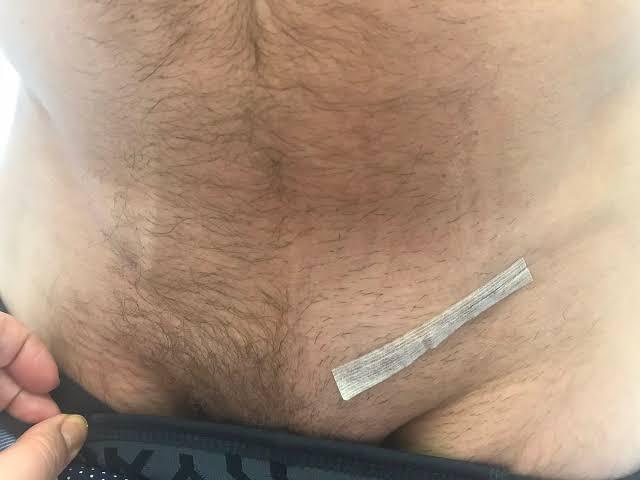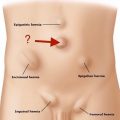
A hernia occurs when an internal organ or other body part protrudes through the wall of the muscle or tissue that normally contains it. Most hernias occur within the abdominal cavity, between the chest and the hips.
Hernias are a widespread phenomenon. Around 27 % of men and 3% of women will suffer from an inguinal hernia at some stage of their life. Based on estimates released by international hernia societies, some 20 million people worldwide underwent inguinal hernia surgery in 2007. In Germany around 275,000 inguinal hernia procedures and just under 100,000 abdominal wall hernia operations are carried out each year. Both children and adults of any gender or age can be affected by this condition.
The most common forms of hernia are:
- Inguinal hernia: In men, the inguinal canal is a passageway for the spermatic cord and blood vessels leading to the testicles. In women, the inguinal canal contains the round ligament that gives support for the womb. In an inguinal hernia, fatty tissue or a part of the intestine pokes into the groin at the top of the inner thigh. This is the most common type of hernia, and affects men more often than women.
- Femoral hernia: Fatty tissue or part of the intestine protrudes into the groin at the top of the inner thigh. Femoral hernias are much less common than inguinal hernias and mainly affect older women.
- Umbilical hernia: Fatty tissue or part of the intestine pushes through the abdomen near the navel (belly button).
- Hiatal (hiatus) hernia: Part of the stomach pushes up into the chest cavity through an opening in the diaphragm (the horizontal sheet of muscle that separates the chest from the abdomen).
Other types of hernias include:
- Incisional hernia: Tissue protrudes through the site of an abdominal scar from a remote abdominal or pelvic operation.
- Epigastric hernia: Fatty tissue protrudes through the abdominal area between the navel and lower part of the sternum (breastbone).
- Spigelian hernia: The intestine pushes through the abdomen at the side of the abdominal muscle, below the navel.
- Diaphragmatic hernia: Organs in the abdomen move into the chest through an opening in the diaphragm.
How To Prevent Hernia
Maintain a healthy body weight and eat a healthy diet. Carrying extra body weight puts pressure on the abdominal wall, causing it to weaken. As a person stands or moves around, the abdominal walls are constantly under pressure from the excess weight. When you move or exercise, the extra fat can also put stress on other surrounding muscle groups.
Eating a diet full of fruits, vegetables, nuts and seeds, legumes and whole grains, combined with exercising, can help you reach and maintain a healthy weight. By maintaining optimal body weight, you reduce your chances of developing a hernia.
Prevent constipation. Eating high-fiber foods can help prevent constipation by making your bowel movements more regular. Straining while going to the bathroom increases your likelihood of developing a hernia. When necessary, take a fiber supplement or laxative to help keep you regular.
Use proper lifting techniques. Lifting heavy objects increases your risk of developing a hernia, so it is important to avoid lifting heavy objects, when possible, and use the correct form when lifting weights. Using correct techniques can minimize your risk of developing a hernia.
Quit smoking. People who smoke are at higher risk of developing a hernia. Smokers are more likely to experience severe coughing spells that can contribute to hernia development. If you are a smoker, you can reduce your risk by quitting smoking.
Increase your core strength. By increasing your body’s core muscles, you reduce your risk of developing a hernia. The core muscles include the muscles in the pelvic floor, external oblique muscles, minor muscles, gluteus maximus and trapezius.
Core strengthening exercises can strengthen the muscles in the abdomen and groin and help them stay healthy. Planks are a great core strengthening exercise.
Control your diabetes. In women with diabetes who are insulin-dependent, there is an increased risk of complications after hernia repair surgery – specifically around the surgical scar site or the belly button. It is essential to follow your doctor’s orders to control your diabetes. You can also control your diabetes by eating a healthy diet filled with whole grains, vegetables and fruits, and lowing your trans fat, sugar and salt intake.
Treat an enlarged prostate. If you have an enlarged prostate, you may strain during urination, which may increase the pressure in your abdomen. Patients with an enlarged prostate often wake up two or more times each night to urinate, strain to make the urine flow faster or strain as they empty their bladder at the end of urinating.





